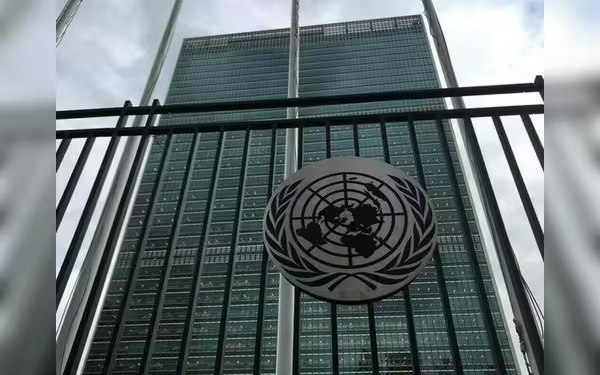Thursday, November 7, 2024 01:48 PM
UN Advocates Carbon Markets for Development in Poorest Nations
- LDCs face severe climate challenges despite minimal contributions.
- Carbon markets could unlock significant investment for LDCs.
- Current carbon credit utilization in LDCs is alarmingly low.
 Image Credits: brecorder
Image Credits: brecorderUN urges leveraging carbon markets to support development in the world's poorest nations facing severe climate challenges.
The issue of climate change is one that affects everyone, but it is the world’s poorest nations that often bear the brunt of its impacts. These countries, known as the least developed countries (LDCs), face numerous challenges, including limited resources and economic instability. Recently, the United Nations has highlighted a potential solution that could help these nations not only combat climate change but also support their development: carbon markets.
Carbon markets are systems that allow countries and corporations to offset their greenhouse gas emissions by investing in projects that reduce or remove carbon dioxide from the atmosphere. This can include initiatives in forestry, agriculture, and renewable energy. According to a report from the UN trade and development agency, UNCTAD, there is significant untapped potential in LDCs to benefit from these markets. However, these countries are currently facing major barriers that prevent them from fully participating.
UNCTAD chief Rebeca Grynspan emphasized that LDCs are experiencing severe climate disasters, despite contributing little to the problem. She stated, “There is an untapped potential in the LDCs,” and called for carbon markets to be “more effectively leveraged to support (their) sustainable development and economic growth.” This means that if these countries can access carbon markets, they could attract much-needed investment and resources to help them grow and develop sustainably.
Despite the potential, Grynspan pointed out that LDCs are only utilizing about two percent of their current capacity to generate carbon credits. This is concerning, especially when considering that these countries could set up projects that might equal around 70 percent of the carbon dioxide emissions from the global aviation industry in 2019. The key to unlocking this potential lies in establishing a viable carbon price. UNCTAD suggests that a price of around $100 per tonne of CO2 would be necessary for LDCs to fully benefit from carbon markets. Currently, the price hovers around $10, which means that a staggering 97 percent of the potential for LDCs to contribute to climate change mitigation could remain untapped until 2050.
The call from the United Nations to leverage carbon markets for the benefit of the poorest nations is a crucial step towards addressing both climate change and economic development. By creating a fair and accessible carbon pricing system, the international community can help LDCs unlock their potential, turning them into active participants in the fight against climate change. This not only benefits these nations but also contributes to a healthier planet for everyone. It is a win-win situation that requires immediate attention and action.













